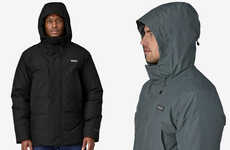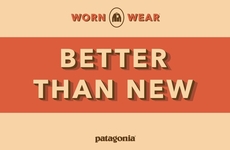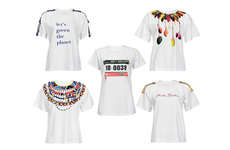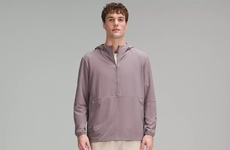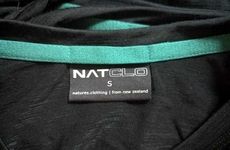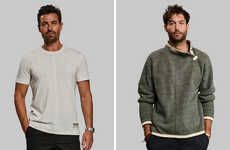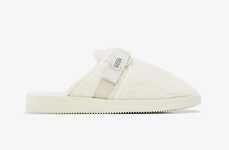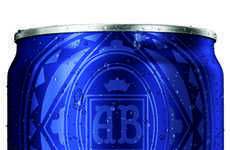
The Patagonia Responsibili-Tee is Made with 4.8 Plastic Bottles
Grace Mahas — January 20, 2021 — Eco
References: patagonia
As consumers become increasingly aware of the pressing dangers of climate change many are seeking to avoid fast-fashion for its prominent role in contributing to the death of the planet. One brand setting itself apart in terms of "slow," sustainable fashion is Patagonia with its new Women's Long-Sleeved Pastel P-6 Logo Responsibili-Tee.
The Women's Long-Sleeved Pastel P-6 Logo Responsibili-Tee is 100% recycled and is "made with 4.8 plastic bottles and 0.3 pounds of cotton scrap, using 96% less water and creating 45% less CO2 than a conventional cotton T-shirt." This casual shirt is available in a variety of colorways including Crater Blue, Piton Purple, Gravel Heather, and Dolomite Blue. Consumers can purchase items online and ship to their home or opt for curbside pick-up.
Image Credit: Patagonia
The Women's Long-Sleeved Pastel P-6 Logo Responsibili-Tee is 100% recycled and is "made with 4.8 plastic bottles and 0.3 pounds of cotton scrap, using 96% less water and creating 45% less CO2 than a conventional cotton T-shirt." This casual shirt is available in a variety of colorways including Crater Blue, Piton Purple, Gravel Heather, and Dolomite Blue. Consumers can purchase items online and ship to their home or opt for curbside pick-up.
Image Credit: Patagonia
Trend Themes
1. Sustainable Fashion - The trend towards sustainable fashion is disrupting the traditional fast-fashion industry, with consumers demanding eco-friendly and ethical clothing options.
2. Recycled Materials - The increasing use of recycled materials in clothing production is disrupting the manufacturing and supply chains of the fashion industry, creating opportunities for new upcycling and repurposing businesses.
3. E-commerce - The shift towards online purchasing and curb-side pick-up options due to the pandemic is disrupting the brick-and-mortar retail industry, creating opportunities for innovative e-commerce solutions and customer experiences.
Industry Implications
1. Fashion Industry - As consumers demand eco-friendly and ethical clothing options, the fashion industry must adapt and transition towards sustainable manufacturing methods and materials sourcing.
2. Recycling and Upcycling Industry - The increasing use of recycled materials in clothing production is creating opportunities for new upcycling and repurposing businesses that can make use of waste textiles and plastic materials.
3. E-commerce Industry - The growing trend towards online purchasing is creating opportunities for innovative e-commerce solutions and customer experiences, particularly for clothing and fashion retailers looking to expand their digital presence.
3.9
Score
Popularity
Activity
Freshness

